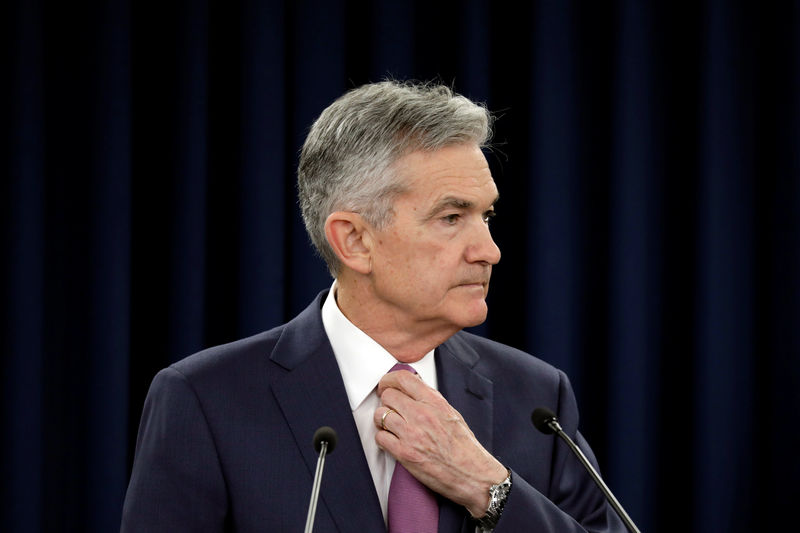By Yasin Ebrahim
Investing.com - The Federal Reserve raised interest rates on Wednesday by a half percentage point for the first time since 2000 as the fight against elevated inflation heats up.
The Federal Open Market Committee raised its benchmark rate to a range of 0.75% to 1% from 0.25% to 0.5% previously. Ahead of the meeting, Fed Chairman Jerome Powell hinted last month that a 50 basis points increase in the Fed funds rate was on the table.
"In support of these goals, the Committee decided to raise the target range for the federal funds rate to 3/4 to 1 percent and anticipates that ongoing increases in the target range will be appropriate," the Fed said in a statement.
The need for speed on rate hikes comes as the central bank is desperate to restore price stability at a time when inflation continues to run well above the Fed’s 2% target.
"Inflation remains elevated, reflecting supply and demand imbalances related to the pandemic, higher energy prices, and broader price pressures," the Fed said.
The core personal consumption expenditures price index, the Fed’s preferred inflation measure, jumped to 5.2% in March.
Above-trend inflation is expected to continue as recent Covid-19 lockdowns in China have likely exacerbated supply chain problems at a time when demand remains robust.
“[W]e're going to see longer lasting and higher than expected inflation for quite some time because of the China problem, it's not going away in the near term,” David Wagner, portfolio manager at Aptus Capital Advisors told Investing.com in an interview on Tuesday. “They're not going to get rid of that policy,” Wagner added, referring to China’s zero-covid policy.
As well as hiking rates, the Fed will also engage in quantitative tightening -- by shrinking its nearly $9 trillion balance sheet -- in the hope to further tighten financial conditions to slow economic growth and inflation.
The balance sheet reduction program is expected to get underway on June 1 at a pace of $47.5 billion per month. "In addition, the Committee decided to begin reducing its holdings of Treasury securities and agency debt and agency mortgage-backed securities on June 1," the Fed said.
Under the plan, the Fed would initially allow about $30 billion in Treasury securities and about $17.5 billion in agency MBS to roll off its balance sheet, with the intent of gradually stepping up the pace after three months to $60 billion and $35 billion per month, respectively.
The size of the reduction rising to $95 billion a month after three months is significantly larger than the start of the previous balance sheet reduction program in 2018.
In the Fed's previous balance sheet reduction program, the central bank permitted about $10 billion of securities a month - $6 billion a month in Treasury securities and $4 billion in mortgage-backed securities a month – to roll off its balance sheet.
As the Fed seeks to rein in accommodative monetary policy measures -- that many argue have played a big role in the more decade bull run in risk assets -- investors are facing a reset, or new normal, that has roiled equities so far this year.
“Investors are warming up to the reality that a lot of the bull market phase that we're arguably coming out of was in no small way driven by the Fed liquidity,” Chief Market Strategist David Keller at StockCharts told Investing.com in an interview on Tuesday.
